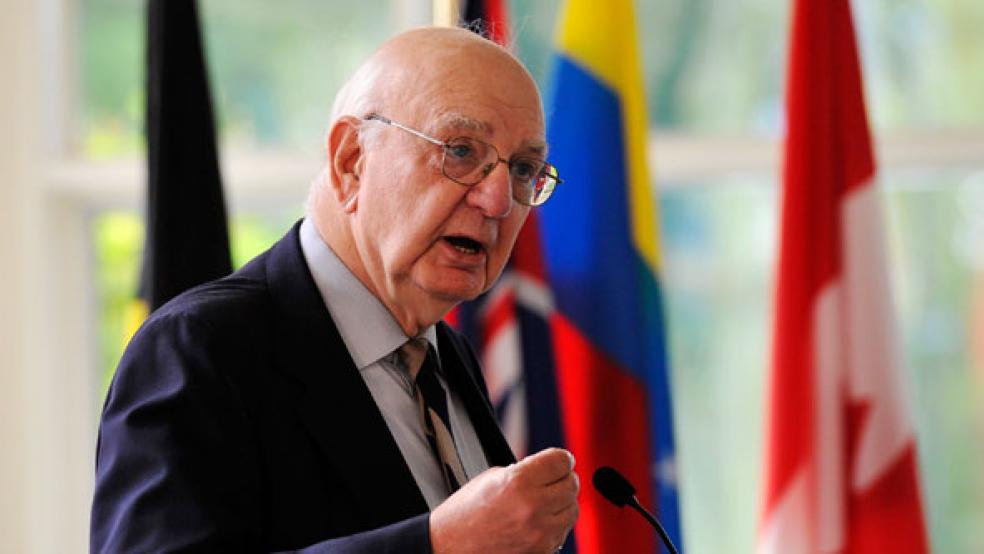With Wall Street, the banking community and conservative lawmakers still bitterly complaining about the Dodd-Frank financial overhaul legislation approved in 2010, there appears to be little appetite in Washington for another major round of regulatory reform.
Making the financial services industry uncomfortable has never been a problem for former Federal Reserve Board Chairman Paul Volcker, however. On Monday, Volcker called for a complete overhaul of the financial regulatory system.
Related: The Spectacular Too Big Failure of Dodd-Frank
Volcker made his mark as Fed chairman in the early 1980s by pushing interest rates sky high in a successful bid to combat runaway inflation. More recently he advised President Obama on the financial crisis and had a hand in designing a controversial provision of Dodd-Frank.
The Dodd-Frank law, named for former Senator Christopher Dodd (D-CT) and former Representative Barney Frank (D-MA), provided the most sweeping revision of the consumer and finance rules since the Great Depression.
However, it left unaddressed the system of regulation in which a vast array of agencies with acronyms like SEC, CFTC and FDIC were charged with overseeing different types of banks and financial institutions.
Volcker insists there is considerable unfinished business that must be addressed to avoid another financial crisis down the road. In remarks delivered in Washington he described the current financial regulatory system as highly fractured and piecemeal in design.
Related: The 5 Best and 5 Worst Regulations in Dodd-Frank
Volcker proposed a complete makeover of the U.S. financial regulatory structure – including both a streamlining and consolidation of myriad federal regulatory agencies.
“The system for regulating financial institutions in the United States is highly fragmented, outdated and ineffective,” Volcker said, according to Reuters.
The Volcker Alliance, a public policy group led by Volcker, issued today’s report on the regulation of banks and Wall Street. It found that the government agencies responsible for overseeing the financial system has changed little since the Depression-era 1930s and can’t keep up with a fast-moving industry.
“A multitude of federal agencies, self-regulatory organizations (SROs) and state authorities share oversight of the financial system under a framework riddled with regulatory gaps, loopholes and inefficiencies,” Volcker said.
Related: Volcker: Wall St. Kills Regs by Running Out the Clock
“What is clear today that may not have been evident years ago is that despite the continuing good faith efforts of our professional and skilled regulatory agencies, failure to reorganize the regulatory structure will contribute to the buildup of systemic risk and make us more vulnerable to the next financial crisis,” he added.
The Volcker Alliance recommends:
- The Federal Reserve would maintain primary responsibility for financial stability and the money supply but would relinquish regulatory responsibilities.
- A new, independent Prudential Supervisory Authority would assume the oversight functions now exercised by the Fed, the Office of the Comptroller of the Currency and the Federal Deposit Insurance Corp. for banks, and by the Securities and Exchange Commission and the Commodity Futures Trading Commission for brokerage firms, money market funds and futures dealers.
- The SEC, the primary regulator of the securities markets, and the CFTC, which oversees futures and options markets and exchanges, would be merged.
Top Reads from The Fiscal Times:





